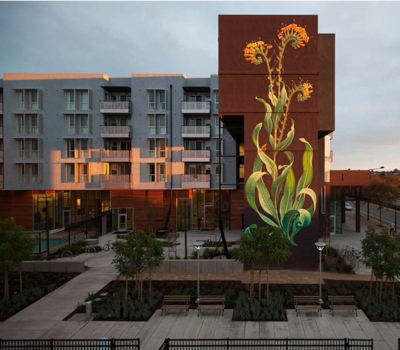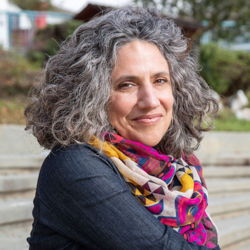Campus News
New research center studies interconnections between urbanism and the environment, with a focus on lessons from the Santa Cruz region
The Center for Critical Urban and Environmental Studies tackles converging 21st Century urban and environmental crises—like climate change and housing affordability—to show how the pursuit of sustainability and social justice are often intertwined.



One of UC Santa Cruz’s newest research centers, the Center for Critical Urban and Environmental Studies (CUES), builds upon a long history of UC Santa Cruz thought leadership in urban-environmental politics to tackle converging 21st Century crises, like climate change and housing affordability.
The center focuses on the interconnections between urbanism and the environment and the social and political underpinnings of environmental issues. The researchers aim to overcome disciplinary divisions between urban and environmental studies, and to show how the pursuit of sustainability and social justice are often intertwined. And they’re using the broader Santa Cruz region as a living laboratory, identifying important lessons from our area that may be applicable across the state, country, and world.
“There aren’t many research centers that combine urban and environmental research in this way, and we want to foreground the importance of thinking of them together,” said Associate Professor of Sociology Hillary Angelo, co-founder and founding director of the center.
“Research on the environment tends to be very positivist, technocratic, and scientific in orientation, but our study of these issues is different in that it’s very politically engaged,” she added. “It’s explicitly about mixing social scientific and technical approaches to these questions to pursue social justice and build a better and more just world.”
Angelo joined UC Santa Cruz’s sociology department in 2015 and is an urban and environmental sociologist who studies understandings of the environment and their relationship to large-scale spatial and social transformations. The center’s assistant director and co-founder, Sociology Professor Miriam Greenberg, studies the intersection of cultural, environmental, and critical urban studies, with particular focus on the temporality and politics of crisis.
The center aims to support related research at UC Santa Cruz through initiatives like funding for graduate student researchers, hosting events, leading a working group where graduate students can learn together and discuss their current projects, and serving as a hub for related faculty research.
One example of the center’s research is a project funded by the California Climate Action Grants program. Eighteen UC Santa Cruz faculty, staff, and students are working with local partners to study how the state’s housing crisis may be increasing climate change risk by driving homeowners, renters, and informally housed people into fire-prone wildland-urban interface areas in search of affordable housing.
The center’s overall approach to research will combine a variety of techniques, from deep dives into theory to historical and archival work to community-engaged research and observation of current trends. The center will also aim to document and draw upon UC Santa Cruz’s history of innovation in critical urban and environmental studies, dating back to the 1970s, including path-breaking work by sociology faculty members like Jim O’Connor and Bill Friedman and the development of UCSC’s interdisciplinary Environmental Studies Department.
Meanwhile, the center’s regional focus will draw attention to what makes the Santa Cruz area unique, as well as the challenges we face that may be more universal.
“There are so many interesting social and environmental dynamics concentrated in our region—between the Monterey Bay, the Santa Cruz Mountains, agricultural areas, areas stewarded by Native tribes, and the increasing expansion of Silicon Valley into our region—and all of these dynamics are so intensely interconnected in our area,” said Miriam Greenberg. “This center will help to advance the unique contributions to research that our region can make and to put them in dialogue with what’s happening globally.”